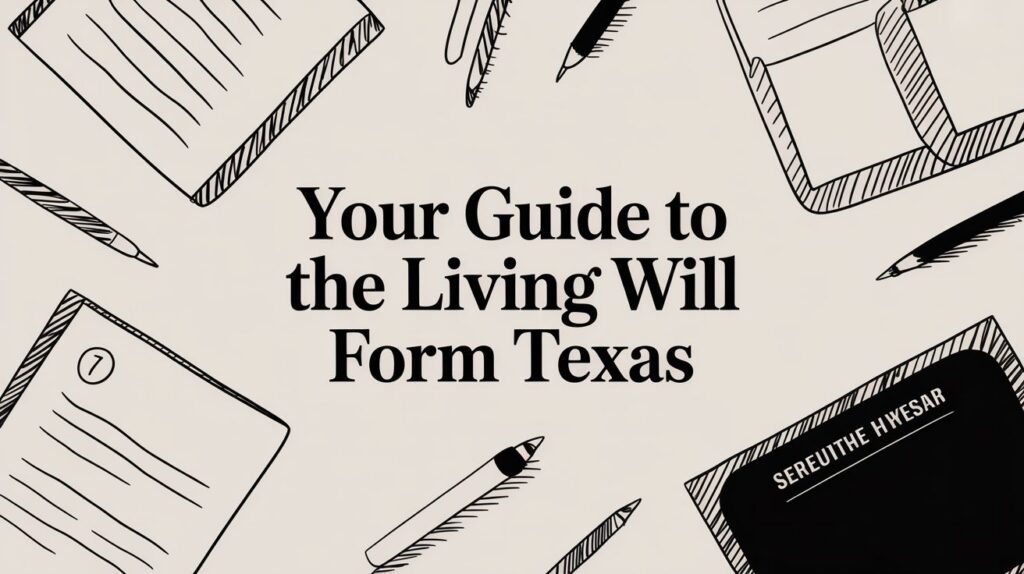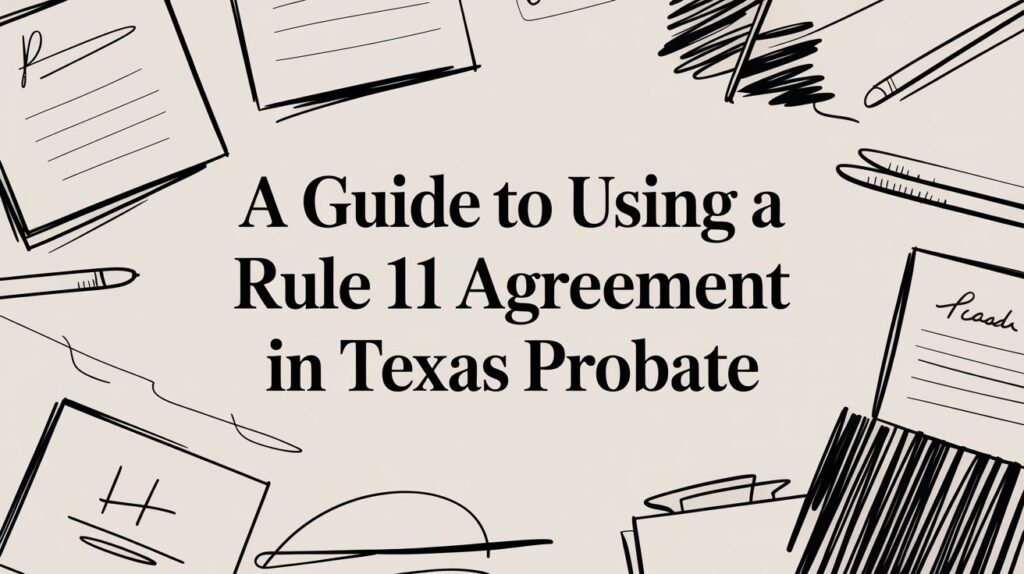When it comes time to probate a will in Montgomery County TX, most people are surprised at how emotional and technical the process can be. You’re not just dealing with grief—you’re also juggling legal paperwork, deadlines, and court appearances. If you make the wrong move, the court may force you to start the process over.
That’s exactly why this guide exists—to help you navigate the probate process in Montgomery County with clarity and confidence. Whether you’re the named executor, a concerned heir, or a supportive family member, understanding the local procedures and options will save time, money, and frustration. Through real-life stories, practical insights, and detailed steps, we’ll walk you through how to successfully probate a will in Montgomery County TX—without getting lost in the legal maze.
Let’s start with the basics to set a strong foundation.

What Does It Mean to Probate a Will in Montgomery County TX?
To probate a will in Montgomery County TX means to formally prove its validity and initiate the court-supervised process of distributing a deceased person’s estate. This includes filing paperwork, notifying all relevant parties, and appearing in probate court, which is located in Conroe—the county seat.
Why the Probate Process Is Necessary
Probate plays a vital role by confirming that:
- The will is legally valid
- The executor holds legal authority to manage the estate
- Outstanding debts and taxes get resolved
- Assets are distributed to the correct heirs
Without this process, banks, title companies, and government offices won’t honor the executor’s actions because they lack judicial verification.
Real-Life Example: Delayed Probate Caused a Family Rift
After her mother’s passing, Rachel assumed that being named executor gave her the power to handle the estate. She didn’t initiate probate in Montgomery County. Months later, her brother tried to sell the family home but couldn’t, since the court hadn’t granted authority. The situation led to tension, legal fees, and delays—all avoidable had Rachel probated the will promptly and correctly.
Step-by-Step Guide to Probate a Will in Montgomery County TX
Let’s walk through the probate process, step by step. While the general procedure applies statewide, Montgomery County does have some local nuances to keep in mind.
Step 1: Locate the Original Will and Death Certificate
Start by finding the original signed will—not a copy. The court won’t accept photocopies unless exceptional circumstances exist. Also, obtain the death certificate, usually available through the funeral home or the Texas Department of State Health Services.
Step 2: Identify the Type of Probate Required
Montgomery County generally offers three probate paths:
- Independent Administration (streamlined, minimal court involvement)
- Dependent Administration (court approval required for most actions)
- Muniment of Title (only when no debt exists except real estate liens)
Your attorney can help assess which option fits best based on the will’s language, estate complexity, and family dynamics.

Step 3: File the Probate Application
Next, you’ll need to file your probate application with the Montgomery County Clerk. This step includes:
- Submitting the application, death certificate, and original will
- Paying the filing fee (usually between $300–$400)
- Scheduling the probate hearing
Make sure to file in the Montgomery County Probate Court, which currently operates under County Court at Law No. 2 at the Alan B. Sadler Commissioners Court Building in Conroe.
Step 4: Attend the Probate Hearing
The judge will use this hearing to:
- Confirm the decedent’s death and the will’s validity
- Verify that you qualify as executor
- Officially appoint you to manage the estate
Montgomery County requires a licensed Texas probate attorney to represent the estate during this hearing. It’s not optional—it’s legally mandated.
Step 5: Obtain Letters Testamentary
After the hearing, the judge will issueLetters Testamentary. These documents provide you with the authority to:
- Access financial accounts
- Sell property
- Pay debts
- Communicate with institutions on behalf of the estate
Think of this as your official permission slip to act on the estate’s behalf.
Step 6: Notify Beneficiaries and Creditors
You must notify all beneficiaries listed in the will, along with any potential heirs not mentioned. Additionally, publish a notice to creditors in a local newspaper—usually the Courier of Montgomery County—to inform them of the estate’s opening.
Step 7: Prepare the Estate Inventory
Within 90 days of receiving your Letters Testamentary, you must file an inventory, appraisement, and list of claims. This report includes:
- Real estate holdings
- Vehicles and personal property
- Financial assets
- Outstanding debts
Failing to meet this deadline may prompt court intervention or penalties, so be timely.
Step 8: Settle Debts and Distribute Assets
With court authorization and legal counsel, begin paying off funeral expenses, valid debts, and taxes. Once those obligations are complete, distribute the remaining estate to the rightful heirs based on the will’s terms. Some actions may require an additional court review, especially under dependent administration.

Step 9: Close the Estate
After you’ve fulfilled all responsibilities, you can petition the court to close the estate. This final step concludes your legal role as executor and officially finalizes the probate process.
Common Mistakes When You Probate a Will in Montgomery County TX
Even with good intentions, executors often misstep during the process. Let’s look at frequent errors—and how you can avoid them. A few small errors early on can trigger long-term consequences for both the estate and the family.
Mistake 1: Filing in the Wrong County
You must file in the county where the decedent resided, not where the executor lives. If the decedent lived in The Woodlands, Willis, or Conroe, Montgomery County is the only appropriate jurisdiction. Filing elsewhere delays the case and may lead to dismissal. Courts strictly enforce venue rules, and the wrong jurisdiction wastes valuable time and money.
Mistake 2: Waiting Too Long to Act
Texas law requires you to file for probate within four years of the decedent’s death. Beyond that, the will may become invalid, forcing the estate to follow intestacy laws. Missing this deadline may even disqualify an otherwise valid executor from carrying out their duties.
Mistake 3: Failing to Hire a Lawyer
Montgomery County mandates attorney involvement for probate cases. Attempting to represent yourself can result in rejected filings or procedural mistakes that stall the case. Probate law is technical, and local procedures vary enough to confuse even well-educated individuals without legal training.
Mistake 4: Acting Without Legal Authority
You can’t sell property or access bank accounts until you receive Letters Testamentary. Taking action too soon may cause legal problems, undo transactions, or trigger disputes among heirs. Courts view unauthorized activity as a breach of fiduciary duty, which could expose the executor to liability.
Special Considerations in Montgomery County
Each county operates slightly differently, and Montgomery is no exception. Understanding these local details helps you stay on track.
Local Judge and Court Expectations
Judge Claudia Laird currently presides over County Court at Law No. 2. Her courtroom is known for efficiency, but filings must be thorough and accurate. If your attorney has experience in her courtroom, your case may proceed more smoothly.
e-Filing and Virtual Hearings
Montgomery County uses eFileTexas.gov for all electronic submissions. Many probate hearings—especially uncontested ones—are conducted via Zoom, which makes attendance more flexible. However, poor documentation or technical issues can delay your hearing, so preparation is key.
Value of Local Legal Experience
Attorneys familiar with Montgomery County probate know how to communicate with court staff, comply with procedural preferences, and avoid unnecessary delays. Hiring local counsel often pays off in both time and peace of mind.
Real Case: When the Wrong County Wasted Six Months
Carlos acted as executor for his aunt’s estate. She had lived and passed away in Montgomery County, but Carlos, living in Houston, filed in Harris County. The court eventually dismissed the case, citing jurisdictional error.
Carlos had to start over in Montgomery County, and the delay led to unpaid property taxes and friction among heirs. This costly mistake reinforced the importance of filing in the correct venue—the first time around.
Can You Avoid Probate in Montgomery County?
In certain cases, yes. If the estate qualifies, you may bypass probate entirely—or use an alternative route.
Alternatives to Full Probate
- Affidavit of Heirship: Used when the decedent left no will, and heirs agree on asset distribution.
- Transfer on Death Deeds (TODDs): Allow real estate to pass to heirs without probate.
- Payable-on-Death (POD) Accounts: Enable direct transfers from financial institutions to named beneficiaries.
- Small Estate Affidavit: Available if the estate is under $75,000, excluding the homestead and exempt property.

Each of these tools offers a shortcut—if you meet the legal qualifications.
Final Thoughts: How to Confidently Probate a Will in Montgomery County TX
Successfully navigating probate in Montgomery County takes more than a basic understanding of the law. It requires thoughtful planning, legal guidance, and attention to detail. Whether you’re filing paperwork, attending a hearing, or distributing assets, every step matters.
By understanding how to probate a will in Montgomery County TX, you not only honor the wishes of the deceased—you also reduce the emotional and financial burden on everyone involved. With the right tools and a qualified local attorney, the process becomes more manageable and far less intimidating.
Ultimately, probate done right doesn’t just settle an estate—it brings closure, clarity, and stability to the people left behind.








